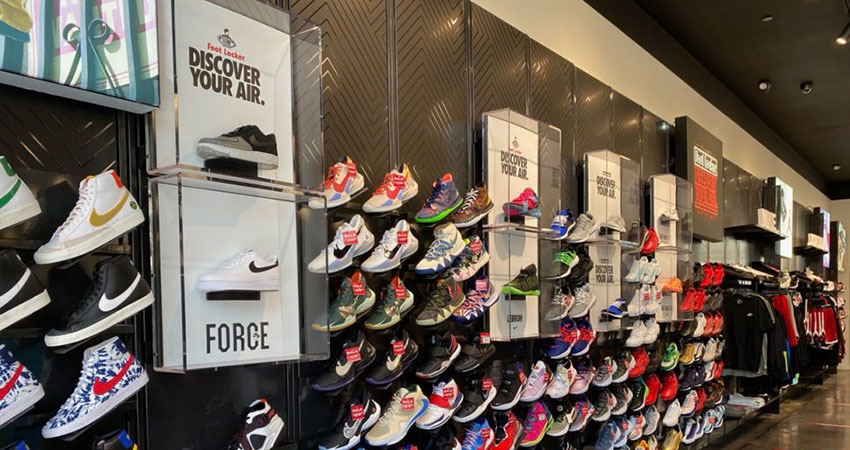Sports apparel retailer Foot Locker continues to be hampered in its results by the ongoing shift of major supplier Nike to a direct-to-consumer model, with Foot Locker reporting on its shifting revenue mix during its fourth quarter earnings report.
“Beginning in the fourth quarter, Foot Locker doesn’t expect any one vendor to represent more than 55% of total supplier spend, down from 65% in the fourth quarter of 2021,” the company said in its earnings release. “As a result, no single vendor is expected to represent more than approximately 60% of total purchases for fiscal 2022, down from 70% in 2021 and 75% in 2020.”
Foot Locker noted the change “reflects the accelerated strategic shift to DTC by one of the company’s vendors, and Foot Locker’s ongoing brand and category diversification efforts.”
Richard Johnson, Chairman and CEO of Foot Locker, told analysts the company will still get marquee Nike products, just fewer units, as it shifts more of its most popular lines to DTC.
Johnson said the company has been expanding customers across demographics and geographies, including the fall 2021 acquisitions of California-based sports apparel retailer WSS and atmos, a Japanese banner selling hip streetwear to sneakerheads, including from a store in Harlem.
Johnson also said Foot Locker continues to invest in its omnichannel platform and expand its own DTC efforts, enhancing the customer experience with speed and convenience, and is expanding its private label lines, including the recent launch of a womenswear brand.
“Our journey to diversify our mix of business and expand our reach as a house of brands and banners is ongoing,” he said in the release. “We look forward to continuing to build on the important areas of success from the past year that strengthen our position at the heart of the youth, sports, and sneaker communities.”
Nike has been moving aggressively into DTC, ending long-term wholesale relationships over the past few years. In 2020 alone, it cut out a number of retail partners including Zappos, Dillard’s, Belk, Boscov’s and Bob’s Stores. Others include DSW, Shoe Show, Dunham Sports and Olympia Sports, leaving the channel’s contribution to Nike’s topline at about 50%.
“Today’s update is likely to fuel longer-held investor concerns about Foot Locker’s extremely concentrated exposure to Nike, which has been emphasizing its own DTC channels and has announced strategic relationships with others,” said Baird analyst Jonathan Komp, according to trade pub International Leather Maker.
For the quarter, Foot Locker reported net income of $103 million or $1.02 per share, down from $123 million or $1.17 per share a year earlier. Total sales were up by 6.9% to $2.3 billion, from $2.2 billion in 2020. Same-store sales increased 0.8%, the company said, “with apparel significantly outpacing footwear.”

